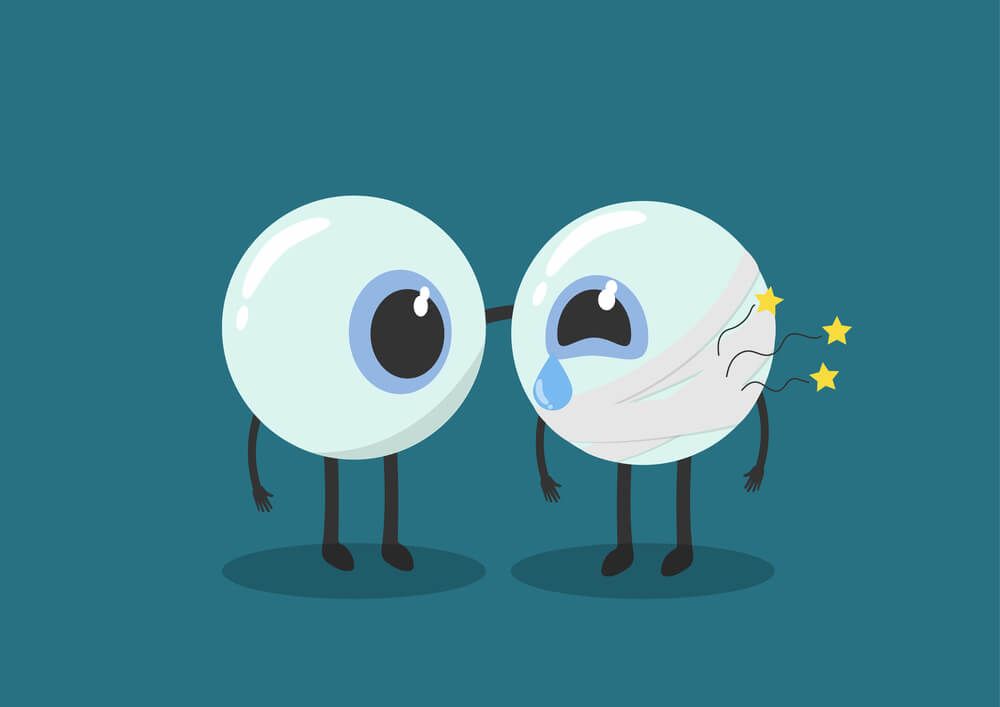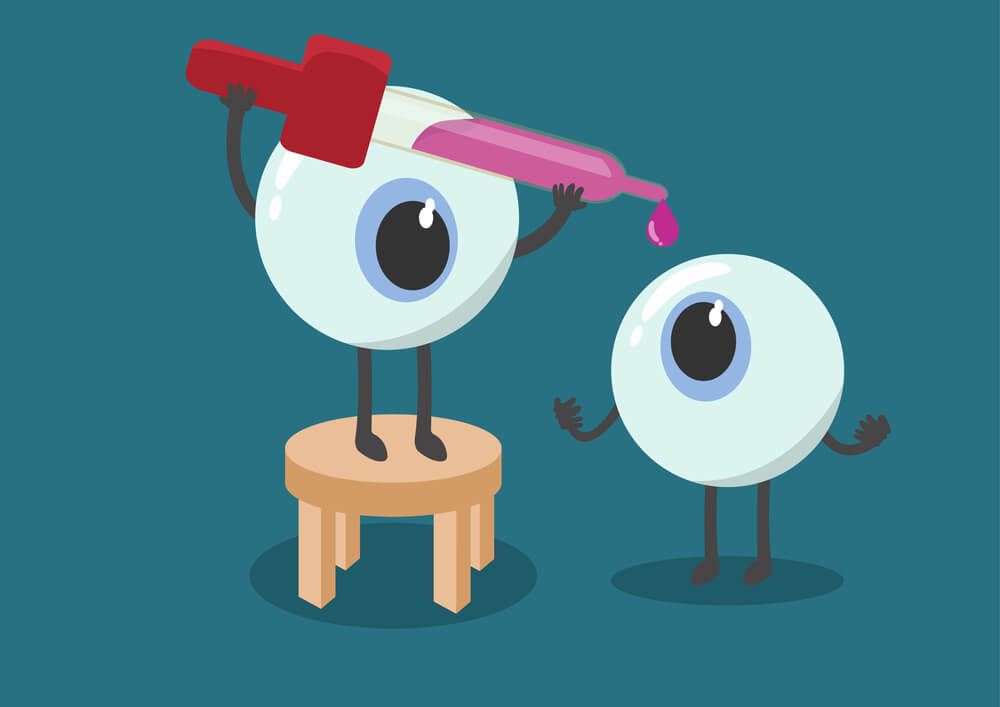
Blog
How to Remove an Irritant from Your Eye
Any discomfort, itching, or dryness in the eyes is referred to as ocular irritation. There are many different causes for it, from minor to major. Over-the-counter eye drops and at-home therapies typically relieve irritated eyes rapidly.
What is Irritation of The Eyes?
You've probably ever had irritated eyes at a particular time in your life. It may result in itchy, gritty, or dry sensations. It could feel as though there is something stuck in your eye. Your eyes may be irritated and you may also have redness or swelling. Certain over-the-counter drugs or home cures typically relieve irritated eyes. It may, less frequently, be a sign of an existing medical issue. If after trying home cures for more than a couple of days your eye continues to bother you, see a healthcare provider. Your healthcare professional can suggest further therapies to aid in your relief.
How Does Irritation of the Eyes Feel?
Generally speaking, irritation of the eyes indicates discomfort in the surrounding area or your eye. It frequently comes with symptoms including blurred vision.
- Itchy eyes and dryness.
- Anguish.
- Swelling or redness.
- Light sensitivity.
- Wet eyes.

What Potential Side Effects Could Irritate Eyes Cause?
Usually, inflammation of the eyes doesn't result in problems. On the other hand, harm could result from a foreign object getting inside your eye. A little fragment of sand, gravel, or glass has the potential to irritate your cornea, the delicate, clear tissue covering your eye. A corneal abrasion, which is a minor scratch on the cornea, normally heals fast. Your doctor can prescribe you eye drops to help with pain relief while the scrape heals.
Possible Reasons
Which Factors Most Frequently Lead to Eye Irritation?
There are numerous potential reasons for ocular irritation, for which over-the-counter (OTC) remedies are available. The following are the most typical causes of eye irritation:
- Allergies: A lot of people experience sensitivity to certain substances known as allergens, or allergies, which affect their eyes. Common allergies include mold, dust, pollen, and pet dander.
- Blocked tear ducts: Normally, your tears exit your eyes through tiny apertures known as tear ducts located at their corners. A blocked tear duct, which can lead to eye discomfort, crusting, or pain impedes tear drainage.
Contact lenses: Inappropriately cleaned contact lenses
- Contact lenses: Improperly cleaned contact lenses may include foreign debris that irritates the wearer and may even cause an infection. Corneal ulcers are sores that can develop in the eye when contacts are worn overnight.
- Digital eye strain: Extended lengths of time spent looking at a desktop or laptop screen, tablet, or smartphone can cause eye strain or irritation. In addition, you can get headaches, neck, or back pain.
- Environmental irritants: Dry weather, smog, pool water with chlorine, and tobacco smoke can all hurt your eyes. Your eyes may also feel grainy or grittily because of environmental pollutants.
- Foreign objects: Occasionally, you may truly feel as though something is "stuck" in your eye. Particles of dirt or an eyelash could go into your eye and irritate.
- Infections: Eye pain can result from a variety of infections, such as bacterial, fungal, or viral infections. One of the most prevalent kinds of eye infections is pink eye, sometimes known as conjunctivitis.
- Styes: These tiny, excruciating growths can appear on or around your eyelids. They may also result in eye edema and typically resemble pus-filled zits.
Are Eyelash Extensions Able to Irritate the Eyes?
Indeed. Any foreign object in or near your eyes might irritate or hurt you. Eyelash extensions can harm your eyes or trigger an allergic reaction.
Which Medical Diseases Irritate the Eyes?
Underlying Medical disorders can occasionally cause ocular irritation such as:
- Blepharitis: A persistent swelling of the eyelids.
- Cluster headaches: A form of headache condition characterized by acute, frequent headache pain that may cause tearing, redness, or swelling in the eyes.
- Systemic lupus erythematosus, often known as lupus: This autoimmune condition can result in ocular issues such as excessive tearing, burning, or scratchy feelings.
- Various sclerosis: An autoimmune condition that may result in reduced or fuzzy vision.
- Ocular rosacea: If it influences your eyelids, this long-term skin disorder may cause dryness, itching, or redness in your eyes.
- Rheumatoid arthritis: An inflammatory disease of a chronic nature that can cause inflammation in the sclera, the white portion of the eye.
- Sjögren's syndrome: An autoimmune condition that results in fewer tears being produced, which can cause dryness, itching, or redness in the eyes.
- Trichiasis: An unusual growth pattern of eyelashes that irritates the eyes when you blink.

Handling and Medical Care
How Can You Relieve Discomfort in My Eyes at Home?
- You can get comfort and reduce eye irritation with a few simple at-home solutions. You can:
- Apply warm wraps to the eye that's hurting.
- Use water to rinse out your eye.
- To relieve itching eyes, take over-the-counter (OTC) antihistamines or allergy drugs.
- Apply over-the-counter synthetic tear drops to relieve dry eyes.
What Medicinal Interventions are Available for Ocular Irritation?
Several medical interventions can be necessary, depending on the underlying cause of your ocular inflammation. If using over-the-counter medications doesn't relieve your eye discomfort, or if it lasts more than a day or two, see a doctor.
- To treat a bacterial eye infection, a medical professional may suggest an antibiotic.
- Scrubs for the eyes to cure dry eyes or blepharitis.
- Prescription eye drops to treat dry eyes or allergies.
For underlying medical issues, you might require further therapies. Depending on your symptoms and requirements, your healthcare practitioner will tailor a treatment plan for you.
How Much Time Does it Require for Otitis Media to Heal?
The majority of minor eye irritation takes away in a few days or so. One to two weeks may pass between eye discomfort and more serious infections. Even if your eye discomfort is moderate, you should still see your doctor if it persists for longer than 48 hours.
How Can You Avoid Irritating My Eyes?
A few easy habits will help you maintain healthy eyes and reduce your risk of irritated eyes, such as:
- Don't share makeup or skincare items with other people.
- Regularly changing cosmetics and skin care items by checking their expiration dates.
- Reducing the amount of time you spend in front of the computer and taking regular breaks.
- Wearing wraparound Wileyx sunglasses to protect your eyes in areas where allergens or irritants are known to be present.
- Remaining inside during periods of low air quality, such as if pollen or smoke is abundant from wildfires.
- If the temperature in your house is dry, consider using a humidifier.
- Frequently cleaning your hands, particularly before and following the use of contact lenses.

When to Make a Doctor's Appointment
When is it appropriate for a medical professional to treat ocular irritation?
If your eye irritation is sudden, severe, or lasts more than a few days, see a doctor. If you experience any of the following symptoms, you should detect one immediately:
Discharge or "goop" in your eye, particularly if it's yellow or green.
- Light sensitivity.
- Excruciating agony.
- Abrupt loss of vision.
Additionally, you want to visit a doctor right once if you have had eye damage, such as
- Getting struck in the eye.
- Splattering substances into your eyes.
- Managing a cut or puncture to the eye.
- What symptoms indicate an infection in the eyes?
- In addition to causing eye irritation, eye infections can also result in:
- A feeling as though anything is in your eye.
- Hazed vision.
- A green or yellow discharge.
- Pain in the eyes.
- High temperature.
- Redness around your eyes or the lids.
If you experience any symptoms of an eye infection, consult a medical professional. Prescription drugs can be necessary to cure the infection.
Does the 20-20-20 Rule Help Avoid Irritating Eyes?
In today's online society, computer screen strain is one of the main causes of eye irritation. In case you have eye strain from staring at a monitor, your doctor might advise you to adhere to the 20-20-20 rule. You should stare at someplace 20 feet distant for 20 seconds during extended screen time, and you should do this every 20 minutes. The principle of 20/20/20 can aid in reducing irritability and eye strain.
Can blue light-blocking Eyewear Help Reduce irritation to the Eyes?
No, using blue light-blocking glasses won't stop digital eye strain or irritation of the eyes. Blue light and digital eye strain are unrelated. Rather, it frequently manifests as prolonged eye fixation on a near object. As an alternative, it typically appears when your eyes concentrate for extended periods on a nearby item. When gazing at a screen, you also blink less frequently, which can cause irritation and dryness in your eyes. You can avoid this by wearing Armourx safety glasses with blue-blocking lenses that block blue light. So, if you have trouble falling asleep, you might want to get some blue light-blocking glasses. To enhance your sleep quality, decrease screen time before bed and activate night mode on your devices.
FAQ's
What is the treatment for eye irritation?
Use artificial tears, rinse with clean water, and rest your eyes.
What to do when eye is irritated?
Rinse with water, avoid rubbing, and use lubricating eye drops.
How long does chlorine eye irritation last?
Chlorine irritation usually lasts a few hours but can extend to 24 hours.
How to treat eye irritation from contact lenses?
Remove lenses, use rewetting drops, and rest your eyes.
Can cataracts cause eye irritation?
Yes, cataracts can sometimes cause eye irritation due to vision changes.





Leave your comment